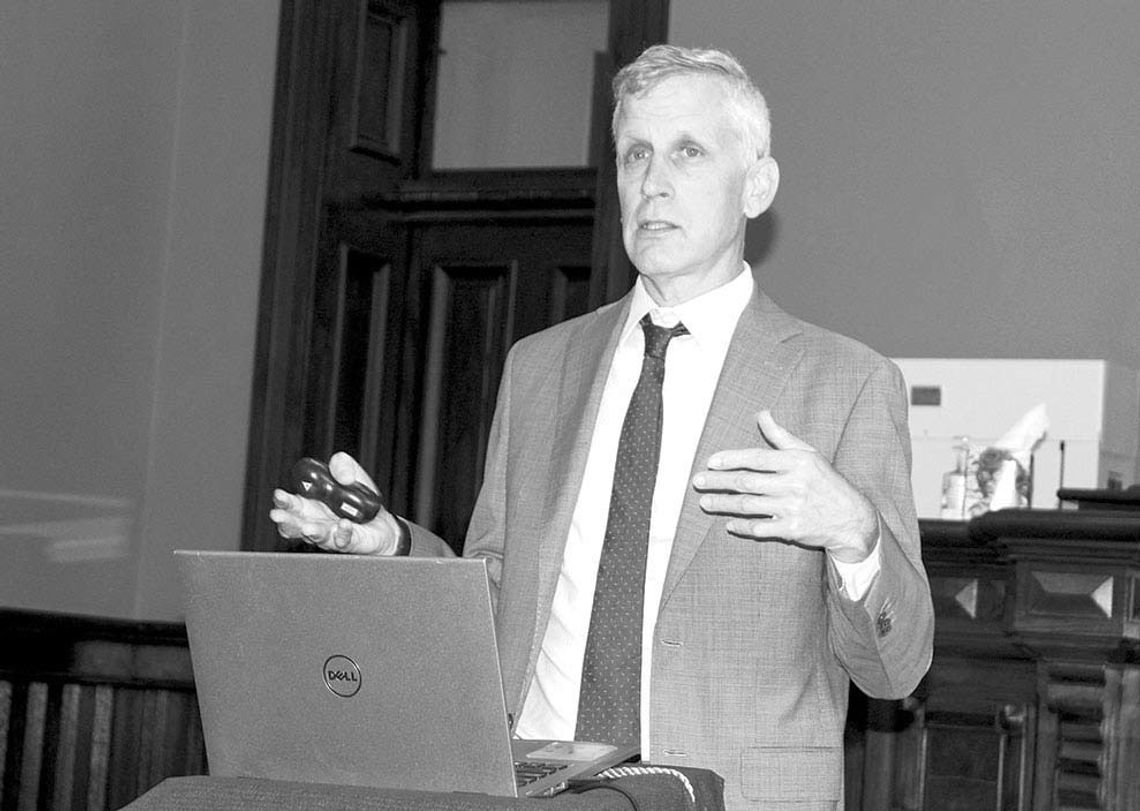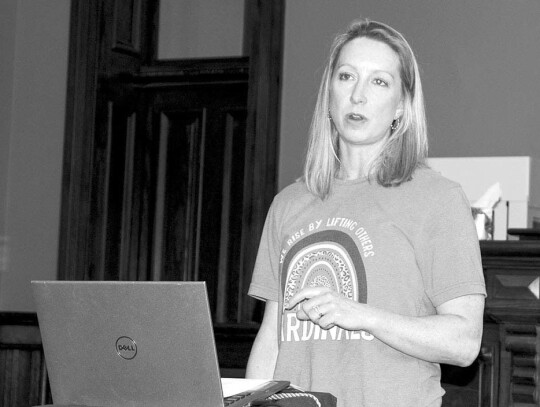COLUMBUS — The Health and Behavioral Wellness Council of Greater Colorado Valley also known as The Wellness Council, met to discuss mental health and disability services for adults and children.
The group met March 9 at the Colorado County Courthouse on the first floor, Room 106, 400 Spring St.
Guest speaker Robert Dole, LCSW-S gave a report over his project All Texas Access, which focuses on increasing mental health services in rural Texas communities.
Dole mentioned that Texana Center is an example of a local mental health authority. Dole described LMHAs as “mental safety nets” for residents in Texas.
Dole said improving LMHA crisis response is one of their goals. They are working on strategies to help “divert people in need of mental health crisis services from jails and ERs into community- based mental health treatment,” Dole notes in his report.
Dole also said that rural communities use crisis services more than urban communities. However, he said people often do not know where to find help or are hesitant to ask for help. He also said people may not know who to contact in their community to get guidance regarding services that can assist in their well-being.
Dole said they are partnering with universities such as Texas A&M, Stephen F. Austin, and Texas Tech in addition to partners in Department of State Health Services in their next phase to help get services more in front of people.
Dole is the Deputy Associate Commissioner for Texas Health and Human Services.
The Wellness Council’s awareness campaign for this month is developmental disabilities. Two early childhood intervention representatives spoke regarding services that can benefit children.
Educational Diagnostician Tiffany Lauzon from Columbus Independent School District spoke about Child FIND which she said covers children from birth to age 21. She said the service also applies to home school and private school. Lauzon said to qualify, a child must meet the criteria for one of 13 disability categories such as autism, emotional disturbance, or other health impairment like ADHD, traumatic brain injury. Students must also demonstrate an educational need.
ECI covers children under the age of three that have a disability, according to Lauzon.
“Parents, doctors, family members, friends may make a referral to ECI on a child. If you suspect a child to have a disability, call ECI and they start the testing and assessments,” she said.
Lauzon said when a child nears the age of three, they start transitioning out of ECI and the school district contacts them to start doing an assessment for the child to determine eligibility.
“If they do meet eligibility, then there’s a possibility that the child can come to our pre-K, which is the early childhood special education preschool program at Columbus Elementary School,” she said.
Lauzon said that some disabilities may not show up until children get older, such as learning disabilities. Because of this, parents or teachers can ask for an evaluation, so students can get counseling or speech services through the school if the child qualifies after getting tested through the Department of Special Programs.
Public Outreach Coordinator for Region III Henry Emiliano also spoke about their ECI program which his son is an alumnus of.
The program is statewide. Their ECI professional team uses a developmental assessment of young children tool to look at developmental milestones in five key developmental domains: speech skills, cognitive skills, self-help skills, motor skills and adaptation skills. To be eligible for ECI services, Emiliano said children must meet a 30 percent or higher delay in any single one of the domains or a 20 percent or higher delay in multiple of the domains.
“All services the ECI Program provides are done in a child’s natural environment whether that be at their own home, family home, a childcare center, like a daycare, school district, public park, anywhere that a child is able to comfortably thrive, we will go and perform those services there,” Emiliano said. “We operate on a coaching approach so that we can guide parents and caregivers through different strategies and techniques to the techniques, so that even when an ECI provider is no longer coming home, these simple things are still being implemented the way that we thought they would be for the children.”
Some of the benefits Emiliano said are being seen from students who go through intervention or early developmental program tend to have reduce need for special needs classes or remedial work once they reach school age. He said studies show children also tend to have greater language abilities, improved overall nutritional health, and decreased incidences of challenges of childhood abuse and neglect.
“We work off of referrals but we thrive on community awareness,” Emiliano said. “The more people who know what it is that we do and who it is that we serve, the more opportunity we have to honor our mission statement early as best.”
To learn more, visit esc3.net or call 361-5730731.
The next meeting will be Thursday, April 13 at noon.
.jpg)




